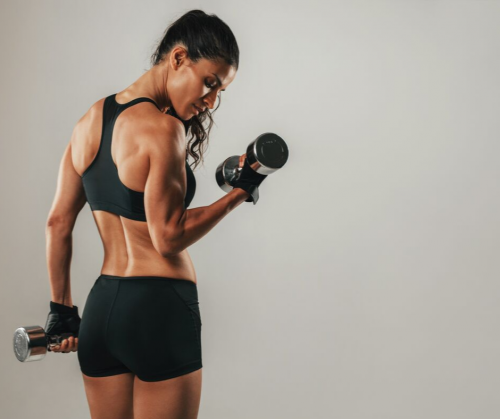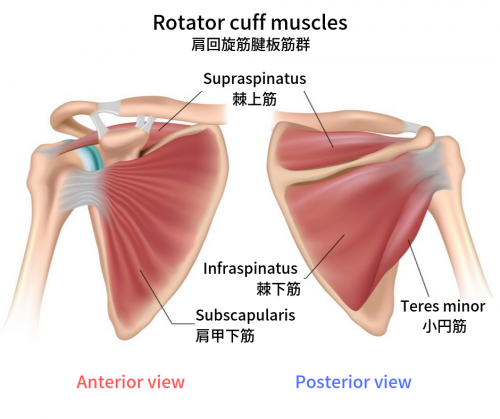Hello, my name is Sato and I run J-CLINIC, a physiotherapy and acupuncture clinic in Bangkok.
A fit body with muscles strengthened through weight training looks great.


But any imbalances that may arise between the outer and inner muscles can hurt the hips, shoulders, hip joints, and knees.
Today, I’d like to talk about J-CLINIC’s treatment for weight-training injuries, using an example of a client with pain in the left shoulder caused by bench presses.
Before we get to the case, let’s review what we mean by the outer and inner muscles.
Outer muscles
- Outer muscles can be felt from the outside. They can be moved consciously.
- You can strengthen outer muscles with weight training.
Because these muscles are on the outside, you can see the effects of workouts on your physique, which helps raise the motivation to train.
Inner muscles
- Inner muscles lie deep inside the body.
- They maintain posture and support the joints.
If you build only the outer muscles, they can overpower the inner muscles that are supporting your joints. The resulting strain can induce body pain.
Now let’s look at an actual case.
A patient case

Mr. K (31 years old, male) has been muscle training at the gym three times a week for eight months.
J-CLINIC’s diagnosis
J-CLINIC diagnosed Mr. K’s condition as inflammation of the outer muscle (deltoid muscle and biceps brachii tendon).

We identified the following at the root of Mr. K’s pain:
1. Weak inner muscles of the left shoulder joint

2. Limited range of motion of the scapula

However, the increasingly larger outer muscle led Mr. K to stoop, restricting the adduction (inward movement) of the scapula, and preventing him from lifting his arm normally.

The outer muscle exerts a lifting force, while the inner muscle absorbs the shock to the shoulder joint and holds together the arm and scapula. Both outer and inner muscles need to be strengthened in a balanced manner.
Given the causes, J-CLINIC’s treatment for Mr. K comprised:
-
Massage to relax muscle tension
-
High-voltage electric therapy for pain relief
-
Motion & manipulation therapy to improve the motion of his left shoulder
-
Advice on stretching and other exercises
📞For Booking
-
Phrom Phong: 097-257-3577
-
Thonglor: 084-424-1299
-
Ekkamai: 097-245-7863
Past cases
- Physical therapy for ballet dancers
- Common problems for ballet dancers: Hip and knee joint pain
- Sprained playing soccer! Ligament damage
- What if my child sprains their ankle at a trampoline park?
- What causes herniated discs and back pain?
- Post-surgery rehabilitation at J-CLINIC
- Treating sciatica
- Treating frozen shoulder
- Physical therapy for kendo practitioners
- Treating weight-training injuries
- Your stiff shoulders and headaches are caused by uneven shoulder blades?
- What if my child sprains their ankle at a trampoline park? | Bangkok J-CLINIC
Our branches in Sukhumvit road
Phrom Phong Branch (Sukhumvit 31, RSU Tower Floor4)

Thonglor Branch (Soi Thonglor 13, Home Place building Basement Level)

If you are coming by BTS, please take a taxi from BTS Thonglor Station, Exit 3.
If you are coming by car, parking is available at Home Place Building and is free up to 4 hours when you are treated at J-CLINIC.
Ekkamai Branch (Sukhumvit 42, Bangkok Mediplex Floor 3)

If you come from BTS Ekkamai Station, go through exit 2. It connects directly to Bangkok Mediplex. Take the escalator up to the 3rd floor and you will see our clinic on your right.
i>
